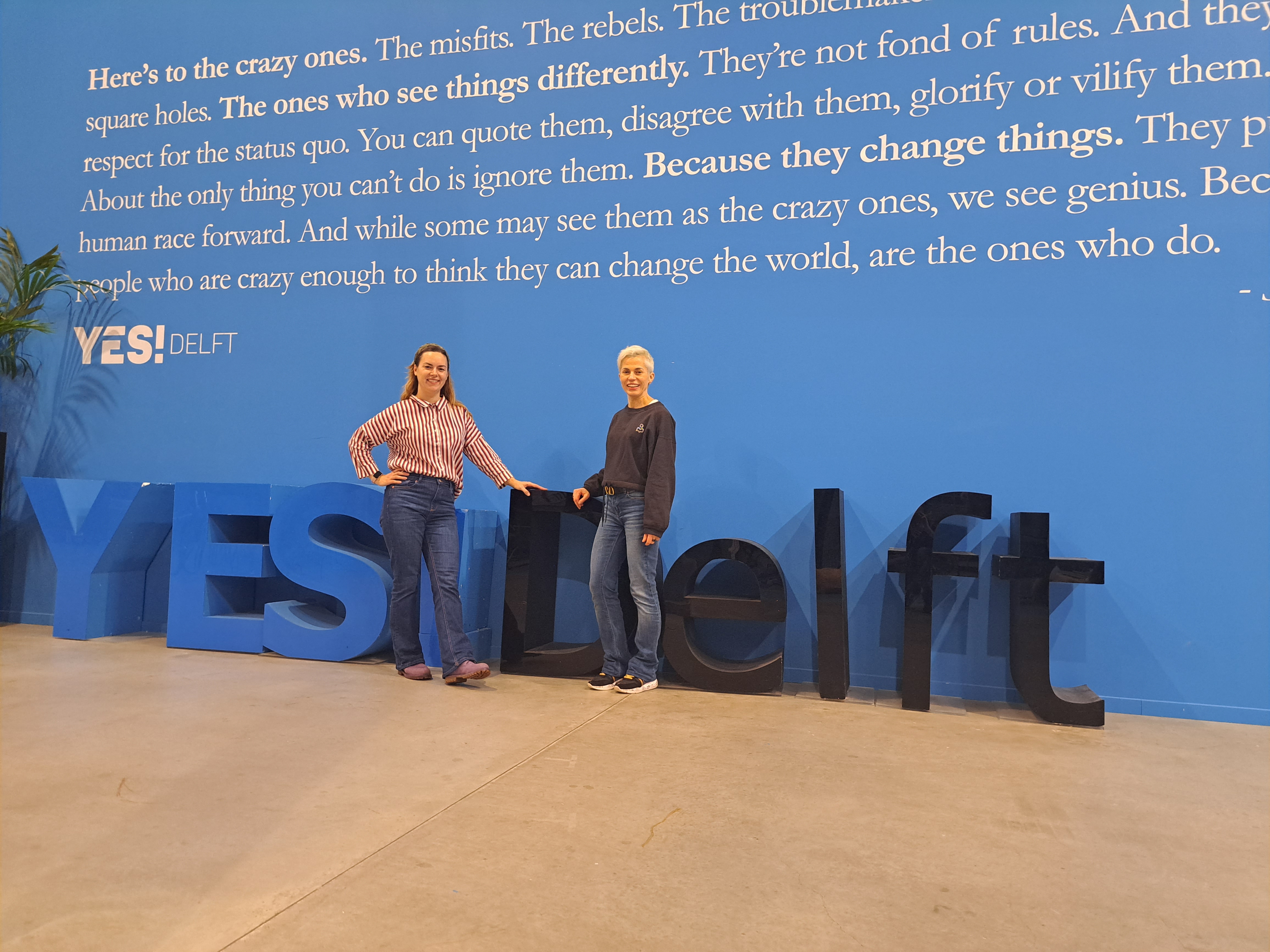Experts from Prestigious US and Dutch Universities Support Kaunas Startups in Acceleration Journey

The medical technology sector in Lithuania is experiencing rapid growth and gaining recognition beyond the Northern European region. The collaborative ecosystem of medical and tech-oriented universities and innovators in Kaunas reflects a trend: Lithuanian startups are poised to expand not only within their borders but also into mature markets like the Netherlands and the US.
In the heart of the US Silicon Valley startup ecosystem, experts emphasize the critical role of finding a fit in the care continuum. “Startups must establish robust networks and immerse themselves in the medical community. Successful teams know the importance of inserting innovation into the care continuum seamlessly. For instance, early adopters recognized the potential of telemedicine. Now we hear the success stories from genetics innovators like IndyGeneUS AI—a pioneer in developing a digital blockchain-encrypted biobank”, says Gail Gannon, an esteemed expert in the US Silicon Valley startup ecosystem and a lecturer at the University of California Berkeley, who shares insights from her experience as a guest speaker and mentor to Lithuanian startups.
Modern medical technology focuses on prevention and efficient healthcare delivery. This dual emphasis benefits both society and investors who recognize the market potential. “A critical catalyst for the rapid growth of health technologies is personalized access to public and specialized health data. Startups armed with this data can develop precise and seamless innovations that address critical needs”, adds Paulius Nezabitauskas, Director of Tech-Park Kaunas—an innovative community nurturing medtech startups.
In the realm of healthcare, solutions developed by startups play a pivotal role in advancing technology. These innovations contribute significantly to digitalization, ensuring the seamless operation of medical institutions and promoting human longevity.
Lithuanian startups have abundant opportunities to attract investment and foster business growth through specialized acceleration programs. “The Accelerator program aims to equip startups with essential knowledge and valuable contacts. It helps them understand the impact of their ideas on the medical sector and assess the attractiveness of their solutions in the market. This assessment extends beyond patients and doctors—it also includes the perspective of investors”, according to Jūratė Danėnienė, coordinator of “Medaccelerator.lt,” the holistic approach is crucial for startup success.
One such success story is “Biownlight”, a winning team from the accelerator program. They specialize in developing a digital solution to reduce eye fatigue using light technology. Their innovation aims to enhance the well-being of professionals working in digital fields. During the accelerator’s training sessions that involved collaborative analysis and communication development with investors, the team achieved a significant leap in their company’s growth.
The program also emphasized the importance of maintaining a clear perspective on business models. “Falling in love with a product under development can cloud judgment. As Chris Burry, a lecturer in the US Silicon Valley startup ecosystem, wisely pointed out, critical evaluation is essential”, says Erika Jurgaitė, the representative of “Biownlight”. By being sensitive to the market needs and customer preferences, the startup could level up.
“The "Yes!Delft" innovation community actively collaborates with US investor funds, which are willing to take on riskier projects. These funds often invest in medical deep-tech and hardware startups and it opened new opportunities for our team,” explains the startup’s representative.
Another success story emerges from “Bioremedium”, a startup whose achievements are attributed to its close partnership with the Lithuanian University of Health Sciences (LSMU). The startup focuses on developing prototypes for treating non-healing or chronic wounds, including bedsores and diabetic wounds.
In addition to their local collaboration, the innovators from “Bioremedium” also gained valuable experience through an internship at Delft University in the Netherlands. According to Rimantas Tuskevičius, CEO of Bioremedium, accelerator programs stand out due to the expertise of their lecturers. “These experts analyze relevant topics and guide teams along their growth trajectory. The program’s consistent moderation further enhances the startup’s business model”, summarises R. Tuskevičius.


